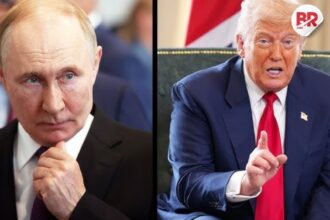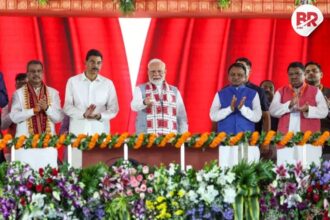
The Pahalgam attack in Kashmir, which left multiple casualties in its wake, has sparked international attention, especially from Pakistan. The country is now calling for an independent international inquiry to uncover the truth.
Pakistan’s Defence Minister has publicly urged that a transparent investigation be conducted, as reported by The New York Times. But is this a genuine call for justice—or a well-timed political maneuver?

Pakistan’s Stand: Deny, Deflect, and Demand
Pakistan’s response to the attack has been a blend of denial, cooperation, and subtle threats. Despite vehemently denying any involvement in the incident, Pakistan insists it is open to an international investigation—an offer so magnanimous you might expect them to also offer tea and snacks for the inquiry team.
They want the world to know they are “willing” to cooperate. A noble stance, no doubt.
Here’s a breakdown of Pakistan’s key talking points:
- Denial of Involvement: Pakistan is adamant that it had no role in the Pahalgam attack. They firmly claim that it’s an “Indian issue.”
- Call for International Inquiry: They want an international body to investigate, hoping that it will be impartial (because, apparently, no one trusts India’s inquiries).
- Willingness to Cooperate: Pakistan says, “We’ll cooperate,” as if this should earn them a gold star.
- Caution Against Escalation: Of course, Pakistan warns everyone not to jump to conclusions or escalate the situation based on “unverified” claims. How kind of them.
Also Read Terrorism Has a Price: India Demolishes Homes of Five Terrorists in Pahalgam Retaliation
The LeT Factor: Or How Pakistan Turns a Blind Eye
A key issue in this entire debacle is the alleged involvement of Lashkar-e-Taiba (LeT), a Pakistan-based militant group. India has long linked LeT to attacks in Kashmir, and the Pahalgam incident is no exception.
But Pakistan, true to form, claims that attributing the attack to LeT is just another ploy to tarnish their image. In this narrative, the real threat is not LeT—it’s India’s constant effort to blame Pakistan for everything, from this attack to, presumably, the weather.
Why the Call for an International Probe?
Pakistan’s demand for an international inquiry may seem noble on the surface, but the underlying motive is clear. Pakistan doesn’t trust any investigation led by India, which—given the current state of affairs—makes sense. The two countries have a history of distrust and accusations flying in both directions like confetti at a wedding.
The idea is simple: a neutral body might offer a more impartial perspective on the truth, free from the political biases that might color an Indian-led probe.
The real question, of course, is whether Pakistan actually wants the truth, or just a good way to shift the blame and keep international pressure off its back. Spoiler alert: It’s probably the latter.
Also Read Despite The Deadly Pahalgam Attack on India, Pakistan Breaches Ceasefire Again—How Far Will This Go?
What Happens Next? Brace for More Drama
If an international probe takes place, it could either clear Pakistan or lead to further tensions. If the investigation links Pakistani entities to the attack, expect the diplomatic fallout to be monumental.
On the other hand, if Pakistan is exonerated, it could place additional pressure on India to address human rights concerns in Kashmir—a topic that Pakistan has expertly raised time and again in the international arena.
In any case, Pakistan’s call for an inquiry has certainly stirred the pot. The world will wait and watch to see if this “transparent” investigation actually happens—or if it’s just another chapter in a decades-long saga of mutual distrust and blame games.
A Delicate Dance
This situation requires careful diplomacy. A transparent and impartial inquiry could serve as a pathway to de-escalating tensions between India and Pakistan. However, whether any genuine investigation will take place is anyone’s guess.
For now, Pakistan’s call for international scrutiny highlights the importance of addressing geopolitical tensions with an unbiased approach. The world can only hope that the truth will emerge, no matter how inconvenient it might be for some.
Also Read Global Shock After J&K Ambush: UN Security Council Draws a Red Line












